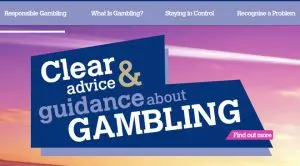 GambleAware, a leading British charity organisation formerly known as the Responsible Gambling Trust (RGT) has announced that the Multi-Operator Self Exclusion Scheme (MOSES) had turned out to be successful. According to the information presented by GambleAware, the self-exclusion scheme for licensed retail betting offices has been very efficient to users who have wanted to reduce or stop their gambling activity.
GambleAware, a leading British charity organisation formerly known as the Responsible Gambling Trust (RGT) has announced that the Multi-Operator Self Exclusion Scheme (MOSES) had turned out to be successful. According to the information presented by GambleAware, the self-exclusion scheme for licensed retail betting offices has been very efficient to users who have wanted to reduce or stop their gambling activity.
Unfortunately, the newest research initiated by the charitable organisation showed that the individuals who suffered from problem gambling behaviour needed some additional support to help them reduce their gambling habits.
The Chief Executive Officer of GambeAware Marc Etches commented on the matter, saying describing self-exclusion as an important tool for people suffering from gabling addictions who would like to put these habits under control. He further explained that the report showed that self-exclusion is more effective when complemented by professional help and treatment, which was currently available in the country totally free of charge.
GambleAware was asked by Senet Group to evaluate independently the Multi-Operator Self Exclusion Scheme. The latest research was aimed at making an assessment of the efficiency of MOSES when it comes to providing customers, who want to put an end to their gambling activities or at least reduce them, with help and support. The research was also focused on establish new opportunities for improvement of the current situation.
As a result, GableAware has revealed its conclusion that 83% of the users who have been dealing with gambling addictions have found the Multi-Operator Self Exclusion Scheme very effective in terms of reducing or stopping problem gambling habits.
In addition, the evaluation carried out by Chrysalis Research found that 54% of the research participants who had taken advantage of the self-exclusion scheme and had excluded themselves from Licensed Betting Offices, had done the same with online betting. Also, 71% of the respondents had not made further attempts to use any of the betting offices available in the region since they had joined the MOSES.
According to the results of the survey, 86% of the participants had said they understood that they bore the responsibility to stay away from the betting outlets once they had entered their names in the self-exclusion scheme. Of course, there were also people (a total of 21% of the survey respondents) who still believed that the betting outlets’ staff was responsible for keeping them out of the retail betting and gambling venues.
Last, but not least, 17% of the people who took part in the research shared their belief that they had the right to change their decision about using the services provided by the retail betting terminals after they had become part of MOSES.
According to the data presented in the report, most gambling and betting venues staff had the belief they were suitably equipped in order to explain the registration process and the details of the self-exclusion scheme to their customers.
The Chairwoman of The Senet Group Wanda Goldwag also commented on the results of the research, saying that the entire team of the organisation had the determination to make self-exclusion process not only simple, but also as efficient as possible. As she said, the research proved that a great number of customers has preferred to exclude themselves from in-house betting, and the eventual establishment of a fully-integrated system of self-exclusion would be beneficial in terms of any form of gambling.
- Author


